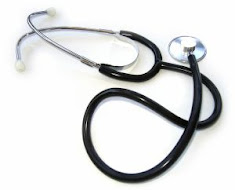 By Heather Mayer
By Heather MayerThink everyone wins when you bribe Junior to finish his broccoli for a scoop of ice cream? Wrong! Here we debunk the top five nutritional myths parents encounter on their quest to raise healthy and happy children.
MYTH: Clean your plate. There are starving children in (insert third-world country here).
Attention baby boomers! It is no longer forbidden to leave the dinner table without finishing everything on the dinner plate. “Clean plate clubs,” which advocated food conservation, began in schools during World War II to encourage youngsters to clear their plates.
But times have changed. Since World War II, restaurant portions in the United States have more than doubled, in some cases, making “clean your plate” an unhealthy rule, at least when dining out. Research has shown that when Americans are given larger portions, they ignore their feelings of satiety and continue eating. A study published in the American Journal of Clinical Nutrition showed that adults who were given larger portions ate 30% more.
Children who are forced to clean their plates override their natural ability to monitor how much food they need to grow at a healthy rate. One study showed that preschoolers who were rewarded for cleaning their plates ate more. Don’t worry about your child going hungry; infants and toddlers are able to self-regulate their energy needs and intake, says Jane Uzcategui, a registered dietitian in upstate New York.
Try this: Start serving your child small portions and let them ask for more. A 2003 study in the American Journal of Clinical Nutrition found that when children served themselves food, the portions were appropriate for their age, whereas when adults served them double portions, the children ate 25% more.
MYTH: Eat your veggies or no dessert
It seems easy enough: bribe picky eaters to eat the nutritious food with a sweet, satisfying dessert. The kids get their nutrition, and you avoid a headache. But this mentality can be harmful to children in the long run because it builds a greater aversion to foods like broccoli, sweet potatoes, and peas, according to research by Leann Birch, PhD, a professor of human development at Penn State University.
Sweets should be a once-in-awhile treat, not a nightly ritual to force-feed picky eaters their vegetables. Once parents get into the pattern of bribing their children with dessert, the association of healthy food with “bad” food becomes ingrained..
Candy, cake, and other desserts don’t add any nutrition to your child’s diet, so you’re not depriving your toddler in any way. In fact, you may be helping them. One study has shown that kids whose parents used food and treats as a reward struggle with food controlling their behavior as adults—making this dinner table rule a lifelong battle.
Try this: Depriving children of sweets will encourage them to eat more sugary treats outside of the house. Instead, offer healthier alternatives like fruit or natural sweeteners like honey.
MYTH: What my kids eat now won’t affect them later
It’s hard for parents to wrap their heads around the idea that what their toddler munches on during snack time will have a lasting effect on their health down the road.
“The period from birth to two years is a critical window for the promotion of optimal growth, health, and behavioral development,” according to the International Food Information Council.
“If (a child) is used to poor nutrition quality, they’re missing key nutrients,” says Uzcategui. If a 2-year-old has grown accustomed to drinking soda at lunch and dinner, he or she runs the risk of forming poor nutrition decision-making and being deficient in nutrients provided by milk and 100% juices.
These key nutrients can’t be made up through taking a multivitamin, she says. According to a 2005 report from the federal Dietary Guidelines Advisory Committee, children are not getting adequate amounts of calcium, fiber, magnesium, vitamin E, and potassium.
“Poor eating habits never fare well in the long run,” Uzcategui explains. Children who learn to make poor diet choices are at more risk of becoming overweight or obese, and these habits are learned younger than parents might think, she says. While you may see that scrawny toddler running around with a bag of chips and a sugar juice drink, chances are, those calories and poor habits will catch up.
Try this: Don’t use food, especially junk food, as a comfort tool. Build good habits by finding the real reasons why your child is upset and treating the problem appropriately. Food should only be used to relieve hunger.
MYTH: Sugar hypes kids up
The kids are off the wall—throwing toys, yelling and screaming, running around—and you blame it on the sugar-laden cereal. Unfortunately for parents, it turns out sugar isn’t to blame. Contrary to popular belief, sugar does not have a physiologic effect, like a “sugar high.”
Barbara Strupp, PhD, a professor of nutritional sciences at Cornell University explains that parents tend to believe what they see.
“There are numerous studies in which children have been studied after consuming sugar, and on other occasions after consuming a drink without sugar, and the sugar clearly does not alter the behavior of the kids,” Strupp says. “It is very clear from the scientific literature that sugar does not cause hyperactivity in children, and in fact does not alter their behavior.”
Both Strupp and registered dietitian Jane Uzcategui relates this “sugar high” phenomenon not to sugar itself, but to the atmosphere kids are in when they consume sugar: birthday parties, family gatherings, holidays. Occasions like these excite children with or without sugar.
Sugar isn’t getting off completely scot-free. It’s still the culprit for cavities and a key player in overweight and obesity. And if children fill up on soda or candy, they won’t be hungry for nutritious foods, possibly leading to nutrient deficiencies and over-consumption of calories.
Try this: Choose water or milk instead of juice drinks and soda with meals. Juices “drinks” are not real juices; they are higher in sugar than 100% juices. Be sure to read the labels carefully.
MYTH: My child won’t eat; he’s going to starve
Whether it’s a picky eater or a young child who is “never hungry,” parents’ number one concern is whether their child is eating enough.
Just as children can regulate how much food they need, they also regulate when they’re hungry. Uzcategui says that children who might skip a meal will make up for those calories later. Parents shouldn’t be concerned about how much their child is eating unless they are not following their growth chart, which is measured at pediatrician visits.
As parents, it’s important to make available healthy foods so when a child is hungry, he will eat nutritiously. Even if a child doesn’t like carrots, if there is nothing else available and he is hungry, those carrots will be appetizing, explains Uzcategui.
Frequently, young children will experience food jags—when they only eat one particular food for a certain period of time. Children will move from food to food, but they will eat enough to maintain their energy balance.
Try this: It takes eight to 10 times for a child to decide if he or she really likes or dislikes a food. Often, parents offer a food once, and if the child doesn’t eat it, they never reintroduce it. “The key is to constantly introduce (children) to new foods,” says Keri Gans, RD, a spokesperson for the American Dietetic Association.




